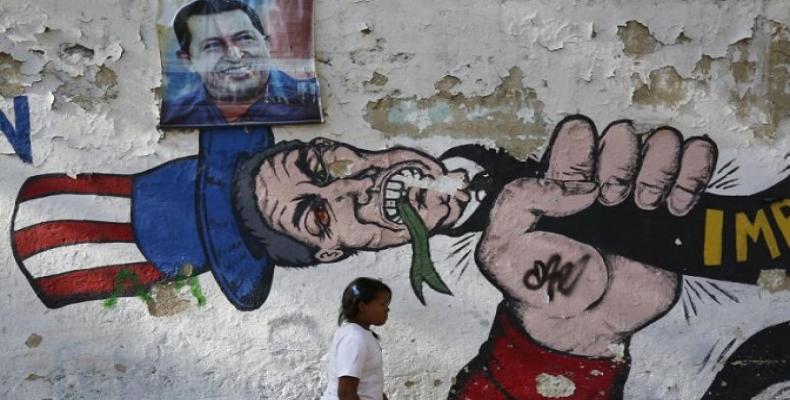Washington, April 18 (RHC)-- In what is being considered yet another attempt at undermining Venezuela's democracy, U.S. President Donald Trump is reportedly preparing a team of lawyers and policy experts to help right-wing Latin American governments write new laws to impose sanctions on Venezuelan officials and industries, as part of Washington's economic and political war against President Nicolas Maduro.
A U.S. source familiar with the policies told Mcclatchy News that the White House has been mounting pressure on its Latin American and Caribbean allies to build a strong mechanism which can be used against Venezuela.
According to the report, while U.S. officials publicly urge the Latin American governments to support Washington's efforts, U.S. diplomats have been actively making concerted efforts to either bring together ambassadors of those governments in Washington or dispatch diplomats across the region, "to encourage allies to reform their laws aimed at ousting Venezuelan President Nicolás Maduro."
The senior official did not reveal the names of the countries the U.S. is pressing but the official reaffirmed "the effort is modeled on past work by previous administrations to help allies draft laws" in countries like Syria and Iraq.
Similar to when "in 2014, former Obama Administration Attorney General Eric Holder dispatched lawyers to North Africa and the Middle East" to help them with possible "terrorist attacks."
The report further stated the United States also aided Central American governments "write asset forfeiture laws to allow the governments to seize the property of the accused even before they're convicted of a crime."
The U.S. Treasury Department plays a major role in helping finance these activities in the form of its Office of Terrorist Financing and Financial Crimes which "works with partner countries on a number of issues, including sanctions implementation," the McClatchy report noted.
"Treasury also engages, when requested by foreign partners, to counter an array of threats to global security and the international financial system, including from Venezuela, Iran, North Korea, narcotics trafficking, and transnational organized crime,” a Treasury official said, according to McClatchy.
The U.S. has imposed sanctions on the Latin American country in an attempt to further paralyze its economy. As part of the US-imposed sanction, over 20 current and former Venezuelan government officials have been sanctioned, including the South American country's president.
The White House has barred U.S. banks from loaning Venezuela any money, also sanctioning the recently launched 'Petro,' Venezuela's national cryptocurrency based on natural resources.
"Countries in the Americas have a responsibility to work together to address the humanitarian crisis that’s been created by the Maduro regime in Venezuela," another senior administration official said.
The White House, National Security Council, State Department and Treasury Department are also working on options to "help drive Maduro from office, including prohibiting any Venezuelan oil being sold in the United States," the report claimed.
In March, Panama’s Economic and Finance Ministry issued a warning to the country's banks, stating Maduro along with over 50 Venezuelan nationals are considered "high risk" for laundering money and financing terrorism, claims that have no evidence and are flatly denied by the Venezuelan socialist government.
Peru's so-called Lima Group, which includes other right-wing governments of Mexico, Brazil, Argentina, Colombia, has publicly demanded that Maduro allow free elections and release "political prisoners". The Venezuelan government had started dialogue and peace talks with the opposition in the Dominican Republic late last year, which ended in January with opposition parties falling short of signing the final agreement under pressure from Washington.
One of the opposition demands had been calling for early presidential elections, which the government announced in February for May 20. However, the main opposition coalition MUD has refused to participate.
Washington advising Latin American allies on drafting sanctions laws against Venezuela


